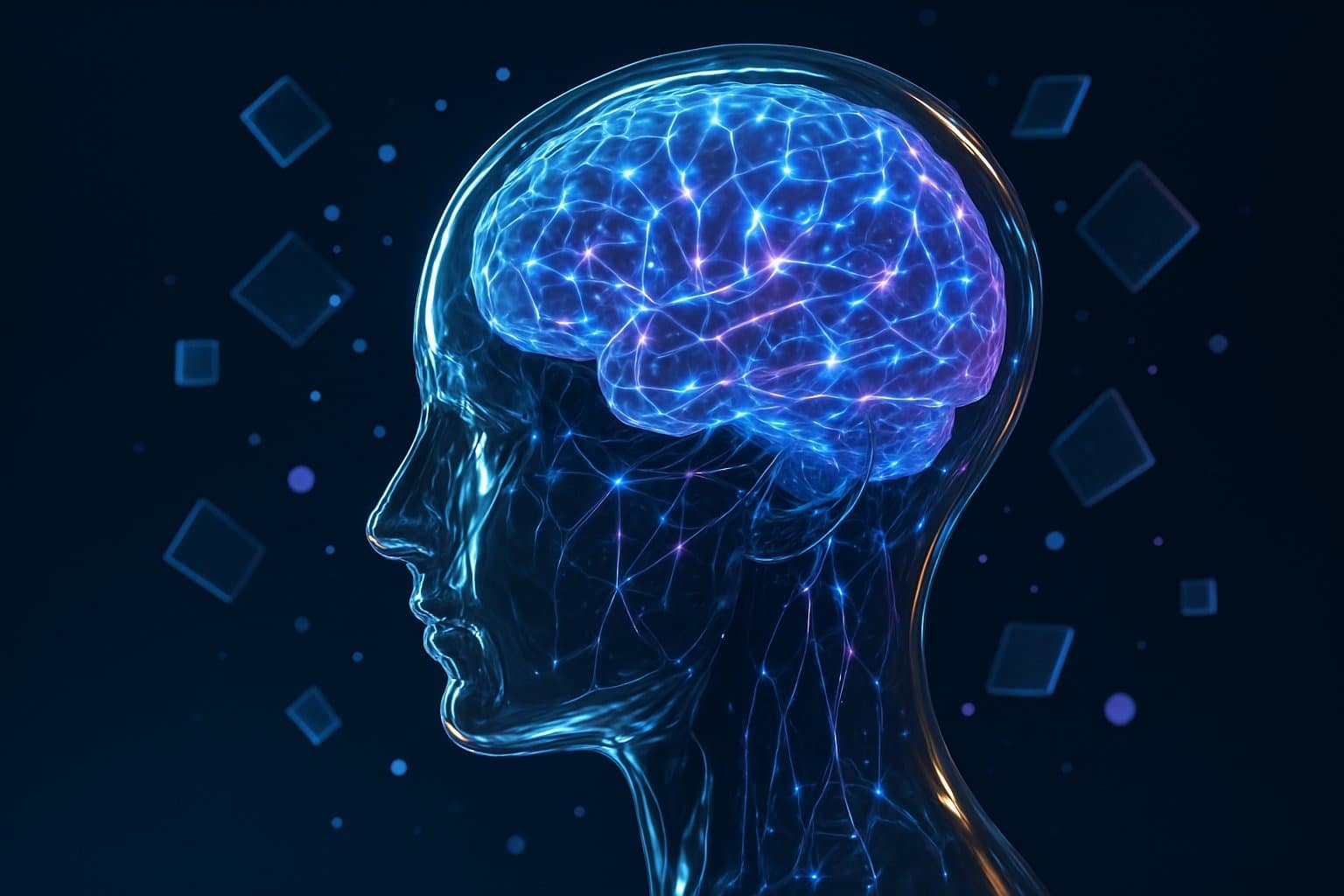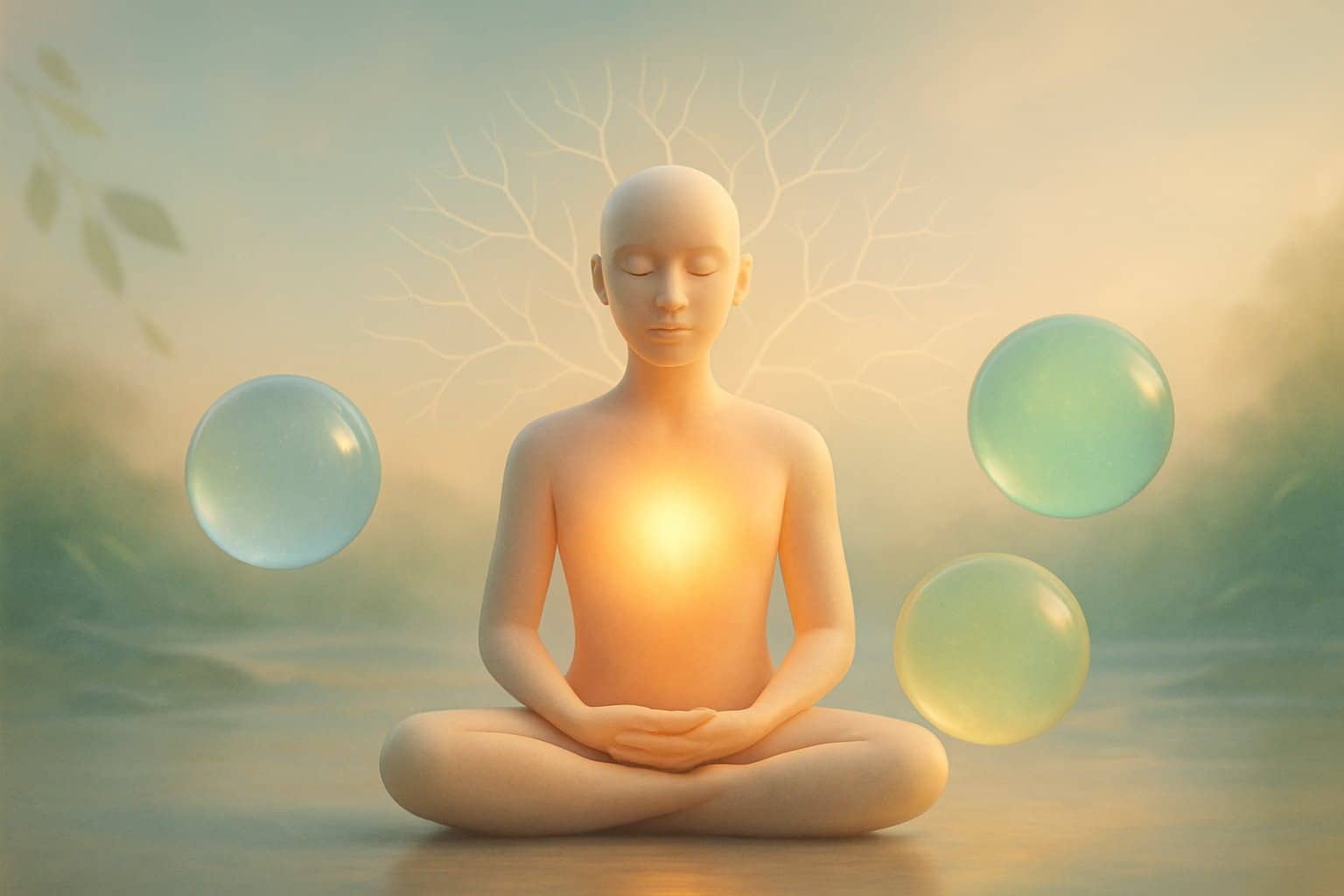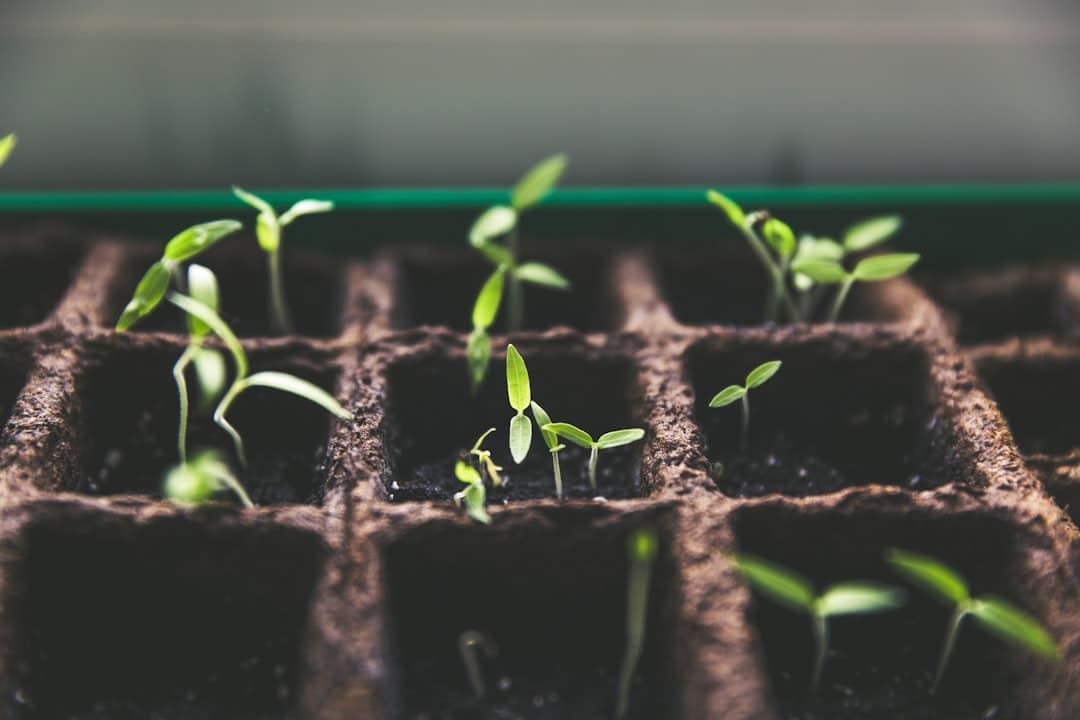Self-Awareness Unlock Your True Potential and Transform Your Life
Have you ever felt overwhelmed by the demands of daily life and lost track of what truly matters to you? Self-awareness is a powerful tool that helps people reconnect with their values and better understand their emotions and behaviors. By practicing self-reflection, using apps like Moodpath or journaling, anyone can begin to notice unhelpful patterns and set clearer goals for personal growth.

Learning about self-awareness has helped many individuals form stronger relationships, make confident decisions, and handle stress more effectively. For those seeking advice on self-improvement or tips for recovery, real-life experiences and guidance can be found in many self-development stories online. Simple techniques and mindful habits can guide each person toward a more empowered and fulfilling life.
Key Takeaways
- Self-awareness leads to better decision-making
- Daily reflection and mindful tools drive progress
- Building self-awareness improves communication
Exploring Self-Awareness
Self-awareness helps people identify their feelings, thoughts, and behaviors. When they notice these patterns, they become better at responding to daily situations.
A simple table shows the two main parts:
| Aspects | Description |
|---|---|
| Internal awareness | Recognizing emotions and motivations |
| External awareness | Understanding how others see and react to you |
Even reading a few self-awareness books can spark personal growth. Many successful people keep a journal or use apps like Daylio and Moodnotes to track moods and reactions.
Some tips to start strengthening self-awareness:
- Reflect for five minutes daily
- Ask for feedback from friends
- Try out guided journals
It takes time and effort, but self-awareness is an ongoing process. For anyone eager to grow, exploring resources such as popular psychology books for self-discovery can also be helpful.
Key Advantages of Building Self-Awareness

Practicing self-awareness helps people handle their emotions, let go of stress, and adapt when hard times hit. Listening to one’s own thoughts can make it easier to bounce back and stay calm, which is at the heart of mastering resilience.
A self-aware person usually forms stronger, more authentic relationships. They tend to communicate better and solve conflicts with care and respect.
Benefits Table
| Benefit | Example | Simple Action Step |
|---|---|---|
| Better emotional control | Pausing before reacting | Use a journal app to track feelings |
| Improved relationships | Listening during arguments | Practice active listening in talks |
| More confidence | Trying new hobbies | Read a personal growth podcast summary |
Books like “The Gifts of Imperfection” and mood tracking tools can support anyone who wants to get started. Practicing self-awareness is a habit worth developing at any age.
Why Knowing Yourself Matters for Growth
Self-awareness helps people find direction and purpose in life. By understanding what matters to them, individuals can make choices that fit their goals, interests, and values. For example, someone with strong self-awareness might use a habit tracker app or reflect with books like “The Power of Now” to better see their habits and thoughts.
Action steps to build self-awareness:
- Keep a daily journal
- Use self-reflection apps
- Try mindfulness exercises
A simple comparison highlights the impact:
| Without Self-Awareness | With Self-Awareness |
|---|---|
| Confused goals | Clear sense of purpose |
| Reacts to pressure | Makes mindful choices |
| Negative self-talk | Recognizes progress |
Exploring these skills can help unlock greater confidence and growth, as explained in how to develop self-awareness.
Ways to Grow Self-Awareness

Becoming more self-aware is a journey that begins with regular self-reflection and a willingness to understand your own reactions and choices. One effective method is practicing mindfulness. People can use breathing exercises, meditation apps like Headspace, or even spend time in nature to help quiet the mind and notice their emotions. Studies show that mindful habits can lower stress levels by up to 30%.
Journaling is another helpful tool. By writing a page each day about their feelings or daily events, individuals often spot patterns or recurring thoughts. Tools such as digital journals or gratitude apps can make this habit easier to maintain.
Seeking feedback from others is also valuable. Honest input from friends or family can shine a light on blind spots. For those looking for more ideas, exploring simple self-discovery activities supports growth.
| Action Step | Example | Tool or App |
|---|---|---|
| Mindful Breathing | 5 minutes/day | Calm, Insight Timer |
| Daily Journaling | Before bed | Day One, Penzu |
| Ask for Feedback | Weekly check-in | Phone, Email |
Set small goals and celebrate progress to keep self-awareness growing.
Self-reflection techniques for enhancing self-awareness
Self-reflection can help people understand themselves better and make positive changes. Research shows that only about 10-15% of people who believe they are self-aware actually meet the criteria, so practicing these techniques is important.
Action Steps for Beginners:
- Create Reflection Time: Finding 10–15 quiet minutes a day makes a difference. Use a journal or favorite note app to track thoughts and feelings.
- Use Thoughtful Questions: Questions like “What am I grateful for today?” or “Why did I react that way?” encourage deeper self-exploration.
- Practice Active Listening: During conversations, focus fully on the speaker and notice internal reactions or hidden judgments.
- Try Mindfulness Tools: Podcasts and guided meditations can support daily self-reflection routines. Top mindfulness podcasts are easy to access on most smartphones.
| Technique | How It Works | Tool/App Example |
|---|---|---|
| Journaling | Record thoughts & emotions daily | Day One, pen & paper |
| Active Listening | Observe reactions during talks | Voice Memos |
| Mindfulness | Focus on the present moment | Podcast, Headspace |
With simple self-reflection habits, anyone can start boosting their self-awareness today.
How Self-Awareness Strengthens Relationships and Communication
Self-awareness helps people relate to others with more understanding and honesty. It acts as a foundation for connecting with others, solving problems, and sharing thoughts in clear ways. Many of the strongest relationships rely on this skill, both at home and at work.
Moving Past Barriers to Understanding Yourself
Many people face challenges when trying to better know themselves. One common barrier is the fear of self-discovery. It can be uncomfortable to face personal flaws or hidden feelings. However, facing this fear is a key part of growing and becoming more fulfilled.
External distractions such as social media, work notifications, and endless to-do lists also make self-awareness harder. Constant noise from digital devices makes it easy to ignore what really matters inside. Setting phone-free times can help create moments for honest reflection.
Self-judgment and tough inner criticism can also get in the way. It is more helpful to practice self-compassion and remember that growth, not perfection, is the goal. Treating yourself kindly builds confidence for deeper self-exploration.
A helpful tool for self-reflection is keeping a simple journal. Writing down emotions or thoughts after a tough day can give new perspective. Some apps such as Day One or Gratitude can help people track feelings and progress over time.
Regularly asking for feedback at work or from close friends can give honest outside views. This can help highlight blind spots and help a person understand how their actions affect those around them. According to recent workplace surveys, teams that practice regular feedback are 27% more likely to say their communication is strong.
Self-Awareness Tips at Work
In the workplace, getting to know your own work style and needs can help boost both teamwork and productivity. For example, reflect if mornings or afternoons are more productive, or if group work or solo tasks feel best. This makes it easier to plan your day and communicate with your team.
A table can help spot personal needs at a glance:
| Area | Questions To Ask Yourself | Example Action Step |
|---|---|---|
| Work Schedule | When do I have the most energy? | Block out mornings for deep work |
| Motivation | What tasks excite me? | Volunteer for creative projects |
| Communication | How do I share feedback? | Practice active listening |
Trying tools like Clifton Strengths or the VIA Character Strengths Survey can help people find their top talents. Knowing these strengths makes it easier to use them in daily life, whether at home or at work.
Simple Practices for Better Self-Awareness
A few simple habits can boost self-awareness for anyone. For example:
- Body scan meditation: Take 5 minutes to notice how each part of the body feels, from head to toe.
- Active listening: In every conversation, focus fully on the person speaking. Ignore your phone or stray thoughts. This shows respect and builds trust.
- Values check-in: Write down your top three values and ask how your recent choices match up with them.
Over time, these small habits add up, making it easier to communicate clearly and handle disagreements calmly. In many cases, people who prioritize self-awareness also report having more fulfilling friendships and stronger professional bonds.
Relatable Example: Someone who notices they get frustrated during group meetings can reflect on why this happens. By naming the emotion, they can plan to take breaks, practice deep breathing, or ask for agendas in advance. These steps help turn tension into cooperation and ease.
Action Steps to Try
- Commit to five minutes of daily reflection using paper or an app
- Ask a trusted friend for honest feedback this week
- Choose one self-awareness exercise to try, such as journaling or short meditation
- Track one emotion throughout a tough workday and write about it after
Podcasts can also support this journey of growth. Listening to top self-development podcasts on a regular basis can offer tips and stories from others who have worked to boost their own self-understanding. For inspiration and practical advice, many people turn to top podcasts in this space.
Taking Ownership of Personal and Work Growth Through Self-Knowledge
Understanding yourself is not only useful for personal happiness – it also boosts effectiveness at work, in friendships, and in families. People who work on self-awareness tend to make decisions that fit who they truly are. They are also better at understanding the needs, feelings, and signals of others.
A few statistics highlight this benefit:
- According to a 2023 survey, 78% of employees who described themselves as highly self-aware reported better relationships with their colleagues.
- Teams who practice open self-feedback see improved project completion rates and fewer conflicts.
Self-awareness supports action, growth, and confidence. When people spend time understanding their emotions, values, and habits, they naturally connect more honestly and successfully with others.
Daily habits like reflection, seeking feedback, and using self-awareness tools are practical ways to grow this skill. Every step taken in self-discovery builds a stronger foundation for effective communication and meaningful relationships.
Frequently Asked Questions

What are some daily habits that improve self-awareness?
Simple habits like journaling, practicing mindfulness, checking in with your emotions, and asking for feedback can build self-awareness over time.
How does self-awareness impact mental health?
Self-awareness helps people manage stress, reduce anxiety, and avoid emotional reactivity. It gives you tools to pause, reflect, and respond mindfully.
Can self-awareness help in relationships?
Yes. By understanding your triggers, communication style, and emotional needs, you become a better listener and partner, which strengthens connections.
What’s the difference between self-awareness and mindfulness?
Self-awareness is about understanding yourself (emotions, thoughts, behaviors), while mindfulness focuses on being present in the moment. Both work hand in hand.
Are there any tools or apps to help build self-awareness?
Yes. Journaling apps like Day One, mood trackers like Moodpath, and meditation apps like Headspace are great tools to support daily self-reflection.
Easy-To-Read Books to Spark Personal Insight?
- “The Gifts of Imperfection” by Brené Brown: Encourages accepting yourself.
- “Emotional Intelligence” by Daniel Goleman: Explains the science in simple terms.
- “Insight” by Tasha Eurich: Offers practical exercises for self-improvement.
These books use relatable stories and easy activities, making them perfect for beginners who want deeper self-understanding.
Conclusion: Begin Your Journey with Greater Awareness
Self-awareness is the foundation of personal transformation. By understanding your thoughts, emotions, and behaviors, you gain the clarity to make better decisions, build stronger relationships, and respond to life with resilience. Through daily reflection, mindfulness practices, and a willingness to seek feedback, anyone can develop this life-changing skill.
As you continue exploring self-awareness, remember that it's not about achieving perfection, it's about progress, presence, and personal alignment. The more you understand yourself, the more confidently and calmly you’ll navigate life. Start small, stay consistent, and you’ll unlock a version of yourself that feels more empowered, grounded, and free.
